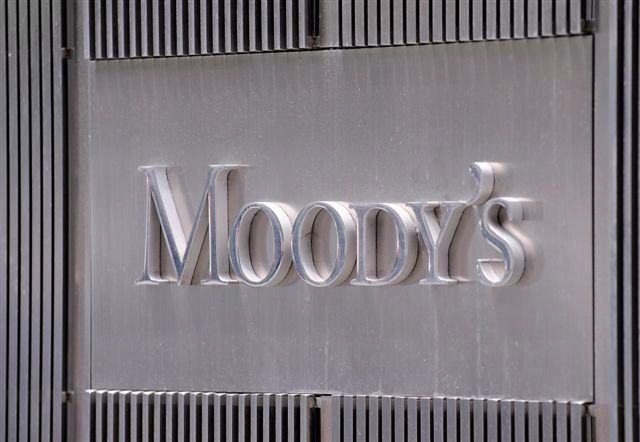
Moody’s proceeded with an evaluation of the Greek systemic banks, after the result of the elections of May 21. The key points that Moody’s sees in the credit strengths of the banks are the significant reduction in each bank’s problem loans, the increase in customer deposits and access to international capital markets, but also the stronger core earnings and the relatively low provisions that support the bottom line of banks’ profitability.
Beyond that, the credit challenges that domestic systemic banks continue to face are: 1) high inflation and high interest rates, which are likely to weigh on asset quality, 2) covering provisions for remaining non-performing exposures and 3) the high level of deferred tax credits (DTCs) undermines the quality of the capital base.
Alpha Bank
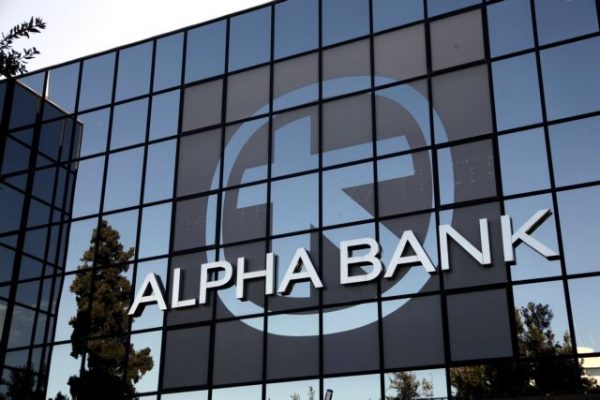
For Alpha Bank, the Ba2 deposit ratings are placed two notches higher than its b1 base case scenario (BCA), as suggested by the advanced Loss Given Failure (LGF) analysis, due to its customer deposits and debt accepted by the MREL.
Alpha Bank’s new legal framework as a banking entity became operational in April 2021, following the spin-off of its core assets and liabilities from the old entity, which was renamed Alpha Services and Holdings (ASH, rated B1) and now acts as its holding company.
Through its transformation plan, the bank significantly improved its asset quality and ability to generate profits. Alpha Bank’s non-performing exposures (NPEs) fell to around 7.6% of gross loans in March 2023 from 12.2% in March 2022, from a high of 42.5% in December 2020.
The bank’s BCA also reflects its adequate capitalization, with a reported pro forma (fully loaded) Common Equity Tier 1 (CET1) ratio of 12.8% in March 2023, compared to 10.9% in March 2022. After the resolution of its loan portfolio, the bank focused on significantly improving its profitability over the next two to three years.
The stable outlook for the bank’s long-term deposit ratings balances its improved credit profile with the challenges ahead of further reducing its NPLs and strengthening its provision coverage.
The bank’s BCA is currently well-positioned at b1 and the biggest upward pressure on its BCA will come from its stronger capital stocks and track record of improving recurring earnings.
Piraeus Bank
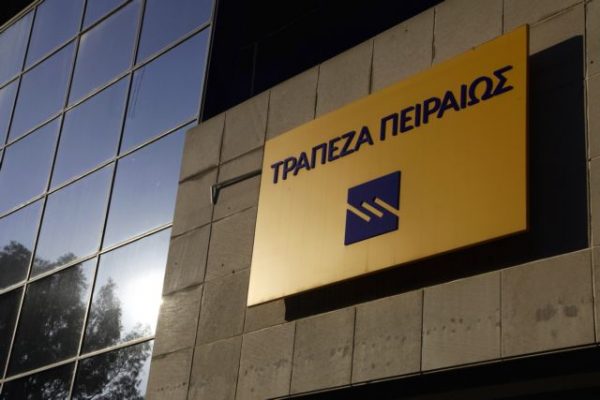
Piraeus Bank’s long-term deposit rating is at ‘Ba3’, two notches higher than its core credit rating (BCA) at ‘b2’, as suggested by the advanced default rating (LGF). This is mainly due to the total deposits of the bank in Greece and the subordinated liabilities through the Tier 2 and AT1 bonds issued by the bank. The stable outlook reflects Moody’s view that the bank’s core credit assessment (BCA) is at a good level, at ‘b2’, balancing its improved asset quality and operating profitability with still relatively weak tangible capital ratios, adjusted by Moody’s, which burden its credit profile.
At the same time, the bank’s core credit rating takes into account the improvement in its asset quality, based on the corrective actions taken to reduce the NPE ratio to around 6.6% in March 2023 from 12.7% in March 2022 Piraeus Bank has also managed to gradually improve its recurring profitability and significantly reduce its cost base. Although the bank took a significant capital hit to achieve balance sheet consolidation, it managed to gradually increase its CET1 ratio to 12.2% in March 2023 from 9.8% a year ago. However, the bank’s capital structure incorporates a high percentage of deferred tax credits (DTCs), which limits its “loss absorption cushion” relative to other banks. More actions in the area of de-risking (reducing risk) and strengthening its balance sheet, according to the bank’s business plan for 2025, could further improve its solvency and growth dynamics.
National Bank
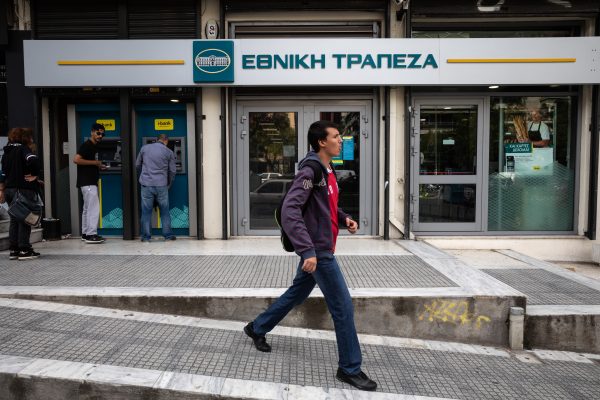
National Bank’s Ba2 deposit ratings are two notches higher than the b1 ratings in the assessment (BCA) scenarios, as suggested by the advanced loss-given-failure (LGF) assessment, mainly due to the pool of customer deposits and debt issued, as well as financing plans.
The ratings do not incorporate any support from the government of Greece, reflecting the government’s limited ability to provide such support. NGE’s BCA of b1 reflects its significantly reduced non-performing exposures (NPEs), which fell to 5.2% of gross loans in December 2022, and the gradual improvement in core profitability.
BCA also takes into account NBG’s ‘comfortable’ regulatory funds with a Common Equity Tier 1 (CET1) ratio of 16.6% in December 2022. However, its funds also incorporate a high proportion of deferred tax credits (DTCs) that limit the bank’s de facto loss-absorbing buffer.
Following the consolidation of the loan portfolio, the bank is currently focused on improving its structural core profitability, with higher net interest and fee income, which will allow the bank to continue its dividend distribution, subject to regulatory approvals authorities.
Eurobank
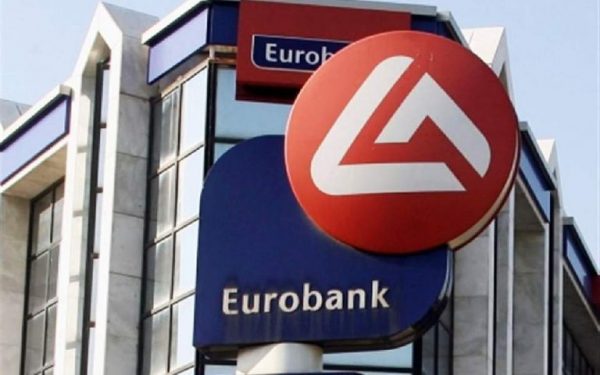
Eurobank’s long-term deposit rating is at ‘Ba2’, two notches above its benchmark credit rating of ‘b1’, as suggested by the LGF, which takes into account the bank’s funding plans under the Minimum Requirements for Equity and Eligible Liabilities (MREL) by the end of 2025. With the completion of its transformation plan, the bank has significantly improved its asset quality and prospects for a stronger profitability generation. Eurobank’s ‘BCA’ takes into account its non-performing exposures (NPEs), which fell significantly to 5.1% of its gross loans in March 2023, amounting to €2.1 billion, from €22.9 billion. euro in 2016. The bank’s credit profile also takes into account the pro – forma fully loaded CET1 ratio at around 15.5% in March 2023, from 13.6% in March 2022, however, the bank’s capital structure incorporates a high rate of deferred tax credits (DTCs), which reduces the ‘loss absorption cushion’.
The bank’s ratings also take into account the updated business plan for 2023 2025 which focuses on strengthening its core profitability, aiming to achieve a return on tangible book value (RoTBV) of 13% in 2023 and 12% in 2025.
The positive outlook reflects Moody’s expectation that Eurobank will continue to improve its credit profile. The bank is likely to maintain a “healthy” capital base and liquidity and will further reduce its non-performing loans, albeit from a lower level, taking advantage of the economic and credit growth momentum of the Greek economy, which is likely to benefit significantly from the RRF funds. These factors may work positively around the bank’s “BCA” index, supporting the positive outlook.
Latest News

Corruption Still Plagues Greece’s Driving Tests
While traffic accidents continue to claim lives on Greek roads daily, irregularities and under-the-table dealings in the training and testing of new drivers remain disturbingly widespread

Pope Francis Died of Stroke and Heart Failure Vatican Confirms
As news of the official cause of death spread, tributes poured in from across the globe. The 1.4 billion-member Catholic Church is united in grief, remembering a pope who championed inclusion, justice, and compassion

Increase in Both Museum Visits, Revenues for 2024
As expected, the Acropolis was the top archeological site in the country, followed by Sounion, Mycenae, the ancient theater of Epidaurus, and Vergina in northern Greece

Where Greece’s Tourists Come From: A Look at 2025’s Top Visitor Markets
The United Kingdom continues to hold the top spot as the largest source of incoming tourism, with 5.6 million seats booked for Greece this summer — up 2.2% from last year. This accounts for 20% of all international air traffic to Greece

Pope Francis: A Pontiff Who Reshaped the Papacy and Sparked a Global Conversation
His first words from the balcony of St. Peter’s Basilica—“Brothers and sisters, good evening”—set the tone for a pontificate that would challenge norms, favor mercy over dogma, and bring the papacy closer to the people.

When Blue Skies was Unmasked as ND’s Political ‘Slush Fund’
The fact that so many top New Democracy (ND) party cadres were paid by the firm Blue Skies, owned by Thomas Varvitsiotis and Yiannis Olympios, without ever citing this publicly, raises very serious moral issues, regardless of the legality

Greek Women’s Water Polo Team Top in the World after 13-9 Win Over Hungary
The Greek team had previously defeated another tournament favorite, the Netherlands, to reach the final.
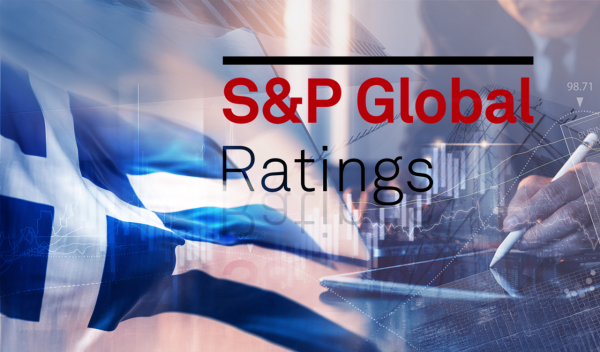
S&P Raises Greek Rating; BBB with Stable Outlook
S&P’s decision raises the Greek economy to the second notch of investment grade ladder, at BBB with a stable outlook.

Greek Tourism Optimistic About Demand from American Market
A recent survey by MMGY Global, conducted from April 3–5 with a sample of 1,000 U.S. adults, found that 83% of Americans still intend to take leisure trips over the next 12 months, a slight drop from 87% in late February

New Exposé by Domumento Reveals Nefarious Triangular Link of ‘Black Money’ with New Democracy, Blue Skies, & Truth Team
The latest exposé by the Documentonews.gr news site lays bare what appears to be a surreptitious path of indirect financing of ND through the business sector—transactions that, as widely understood, rarely occur without expectations of reciprocal benefit










![Πλημμύρες: Σημειώθηκαν σε επίπεδα ρεκόρ στην Ευρώπη το 2024 [γράφημα]](https://www.ot.gr/wp-content/uploads/2025/04/FLOOD_HUNGRY-90x90.jpg)


![Ξενοδοχεία: Μεγάλο το ενδιαφέρον για επενδύσεις στην Ελλάδα – Η θέση της Αθήνας [γραφήματα]](https://www.ot.gr/wp-content/uploads/2025/03/Athens-hotels-90x90.jpg)


![Airbnb: Πτωτικά κινήθηκε η ζήτηση τον Μάρτιο – Τι δείχνουν τα στοιχεία [γράφημα]](https://www.ot.gr/wp-content/uploads/2024/07/airbnb-gba8e58468_1280-1-90x90.jpg)










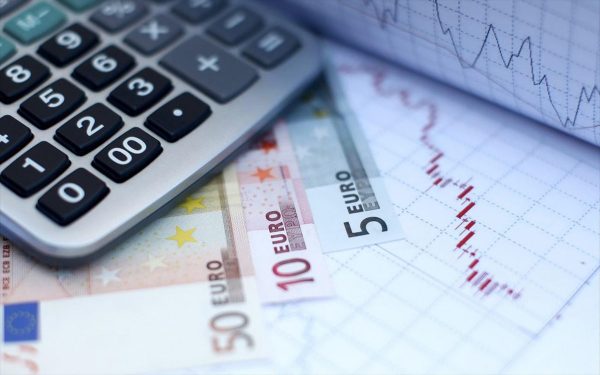






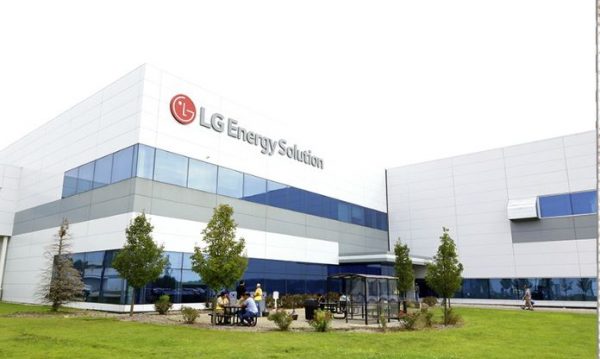




![Ξενοδοχεία: Μεγάλο το ενδιαφέρον για επενδύσεις στην Ελλάδα – Η θέση της Αθήνας [γραφήματα]](https://www.ot.gr/wp-content/uploads/2025/03/Athens-hotels-600x399.jpg)


 Αριθμός Πιστοποίησης
Αριθμός Πιστοποίησης